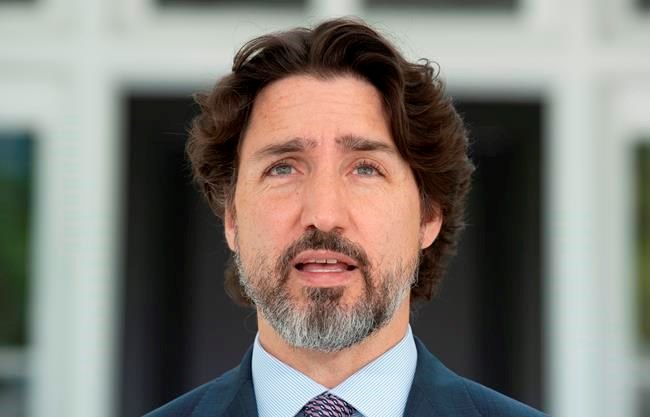OTTAWA — Prime Minister Justin Trudeau expects to have a fulsome conversation with Canada's premiers about immediate and long-term reforms that may be needed of the country's elder care system in light of reports of neglect and abuse of seniors in facilities in Quebec and Ontario.
And while Trudeau says everything is on the table when it comes to those discussions, he and his ministers remained firm Ottawa has no plans to barge into an area of provincial jurisdiction pushing a federal agenda where it may not be wanted.
Trudeau plans to raise the situation facing long-term care facilities with provincial and territorial premiers during their weekly COVID-19 call Thursday, he told the nation Wednesday.
"I will once again offer our federal government's support as they try to get the situation under control," he said.
"We need to do a better job of caring for seniors. They raised us, they built this country, they deserve better."
The immediate priority is ensuring residents living in long-term care centres are getting proper care as the COVID-19 pandemic continues to rage, which includes the ongoing support being delivered by Canadian Armed Forces members helping in nursing homes in Quebec and Ontario.
But while Ottawa is open to having conversations about larger, systemic changes that might be necessary to improve care for seniors across Canada, the prime minister says he respects and recognizes that provinces have jurisdiction over delivery of long-term care.
"There will be many important discussions going forward on how we establish a better system in Canada and I'm not going to short circuit that conversation by putting forward aggressive proposals right now," he said.
"All I will say is the federal government is there to support and to work with provinces to ensure that in areas of their jurisdiction, they are able to give Canadians the care that they and their families expect."
Trudeau was reacting to a report from the Canadian Forces that detailed conditions they found in five long-term care homes in Ontario, as well as a similar report released Wednesday on nursing homes in Quebec.
In Ontario, the military found people left in filth for weeks, others left on the floor where they had fallen, cockroach infestations, people choking while being improperly fed, patients with brutal pressure sores, and seniors pleading for help for hours to no avail.
Allegations also included failure to isolate patients who had tested positive for COVID-19 from the rest of the homes and a host of hygiene issues.
Ontario Premier Doug Ford said Wednesday the province would be undergoing "rigorous inspections," including surprise inspections, of long-term care centres across the province in light of the findings.
Officials want to find out "who are good operators and who are bad actors," Ford said, adding that the majority of nursing home operators in the province are good and he praised the work of front-line health workers.
In Quebec, the military's findings were was less critical than those in Ontario, but they did reveal a widespread lack of personnel and high absenteeism, which the Forces said negatively affected patient hygiene.
Other issues they found included problems with distribution of personal protective equipment, disappearing medical supplies and residents circulating within facilities without protective equipment.
These problems have led to an ongoing struggle in Quebec to bring down the number of COVID-19 infections.
Advocates and experts in long-term health care calling for Ottawa to intervene and implement national standards immediately to address the dire living situations for some seniors, who also face increased risks due to COVID-19.
Treasury Board President Jean-Yves Duclos said Wednesday taking such a unilateral approach without the support of the provinces and territories could backfire.
"We know that federal support and federal guidelines ... that's good when it is developed in collaboration and in full support of the work of provinces and territories, otherwise we'll engage in jurisdictional fights and that would be completely counterproductive," he said.
"We want this to be done to the be benefit of seniors and that's why it must be done in a very respectful manner."
This report by The Canadian Press was first published May 27, 2020.
Teresa Wright, The Canadian Press



